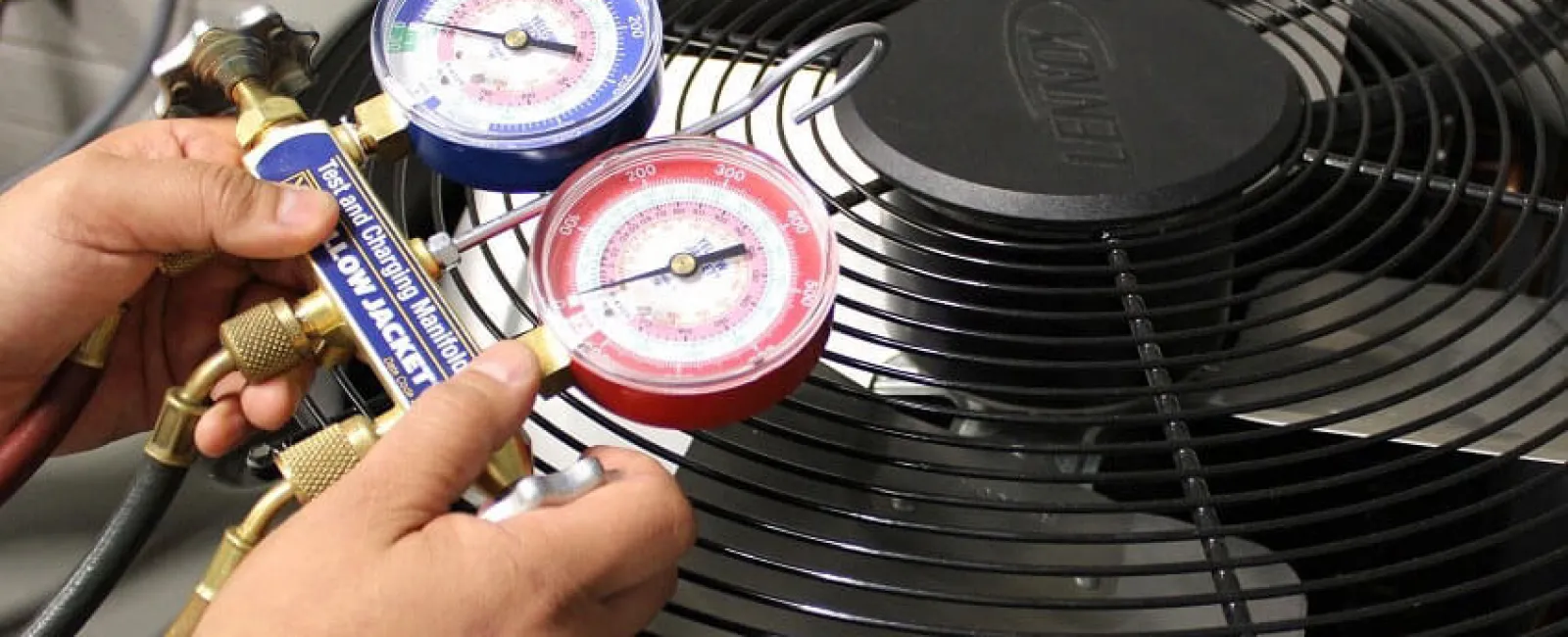February 07, 2025
An air conditioner's compressor is crucial for cooling, as it circulates refrigerant throughout the system. When the AC compressor fails to turn on, the cooling process stops, leading to discomfort and potential system damage. Understanding why a non-responsive compressor can help with timely troubleshooting and maintenance.
Common Causes of an AC Compressor Not Turning On
Electrical Issues
Electrical problems are a frequent cause of an AC compressor failing to start. These can include blown fuses, tripped circuit breakers, or faulty wiring. A power surge can trip the breaker, cutting power to the compressor. Checking your electrical panel regularly can help identify and resolve these issues before they cause system failure.
Thermostat Malfunctions
The thermostat controls your AC system. It may fail to signal the compressor to start if it is not set correctly or malfunctions. Ensure the thermostat is set to "cool" and the temperature is lower than the current room temperature. Periodically replacing batteries and upgrading to a programmable thermostat can help ensure consistent operation.
Refrigerant Issues
Low refrigerant levels or leaks can prevent the compressor from operating efficiently. The refrigerant is essential for heat absorption and exchange; the system cannot cool properly without adequate levels. Signs of refrigerant issues include hissing sounds or ice forming on the evaporator coils. Handling refrigerant requires specialized knowledge, so contact an HVAC technician if you suspect a leak.
Dirty or Clogged Filters
Air filters trap dust and debris to ensure proper airflow. Over time, they can become clogged, restricting airflow and causing the compressor to overheat or shut down. To prevent this, inspect and replace air filters regularly—typically every one to three months—to improve airflow and indoor air quality.
Capacitor or Contactor Failures
The capacitor provides the initial burst of energy to start the compressor, while the contactor controls electrical flow. If either component fails, the compressor will not turn on. Signs of a failing capacitor include a clicking noise or the compressor struggling to start. A professional should test and replace these components to avoid potential electrical hazards.
Dirty Condenser Coils
The condenser coils release heat absorbed from inside the home to the outside air. If these coils become covered in dirt and debris, they cannot efficiently dissipate heat, causing the compressor to overheat and shut down. Routine cleaning of the condenser coils helps maintain optimal performance.
Blocked Suction Lines
Suction lines carry refrigerant back to the compressor. If blocked or incorrectly sized, pressure and temperature can increase, leading to compressor failure. Regularly inspecting suction lines can help identify and fix these issues before they cause severe damage.
Preventative Maintenance and Long-Term Care
Regular maintenance is essential for preventing AC compressor issues. Here are some steps homeowners can take:
- Schedule annual HVAC inspections to ensure all components are functioning correctly.
- Check and replace air filters every one to three months.
- Keep the outdoor condenser unit free of debris and dirt.
- Listen for unusual noises or performance changes that might indicate a problem.
- Ensure refrigerant levels are adequate and address leaks promptly.
By staying proactive with maintenance, you can extend the lifespan of your AC system and avoid costly repairs.
When to Call an HVAC Professional
While some AC compressor issues can be addressed with routine maintenance, specific problems require professional intervention. Call an HVAC technician at MR. HVAC if the circuit breaker trips repeatedly when the system turns on because this could indicate an electrical issue within the compressor. Loud or unusual noises coming from the compressor are another red flag, often pointing to mechanical failure. When the unit blows warm air despite proper thermostat settings, the compressor may not be effectively circulating refrigerant. Ice forming on the evaporator coils can also be linked to compressor problems, especially if refrigerant levels are off due to a malfunction. Finally, if the compressor struggles to start or cycles on and off too frequently, this could indicate serious wear or damage requiring immediate attention.
Final Thoughts
Electrical problems, refrigerant leaks, dirty filters, and component failures are common reasons an AC compressor won't be on. While regular maintenance can prevent many issues, professional repairs may be necessary for more serious problems. If your AC compressor is not turning on, troubleshooting early can help prevent further system damage and restore cool, comfortable air to your home. Contact MR. HVAC today for any and all AC problems!




